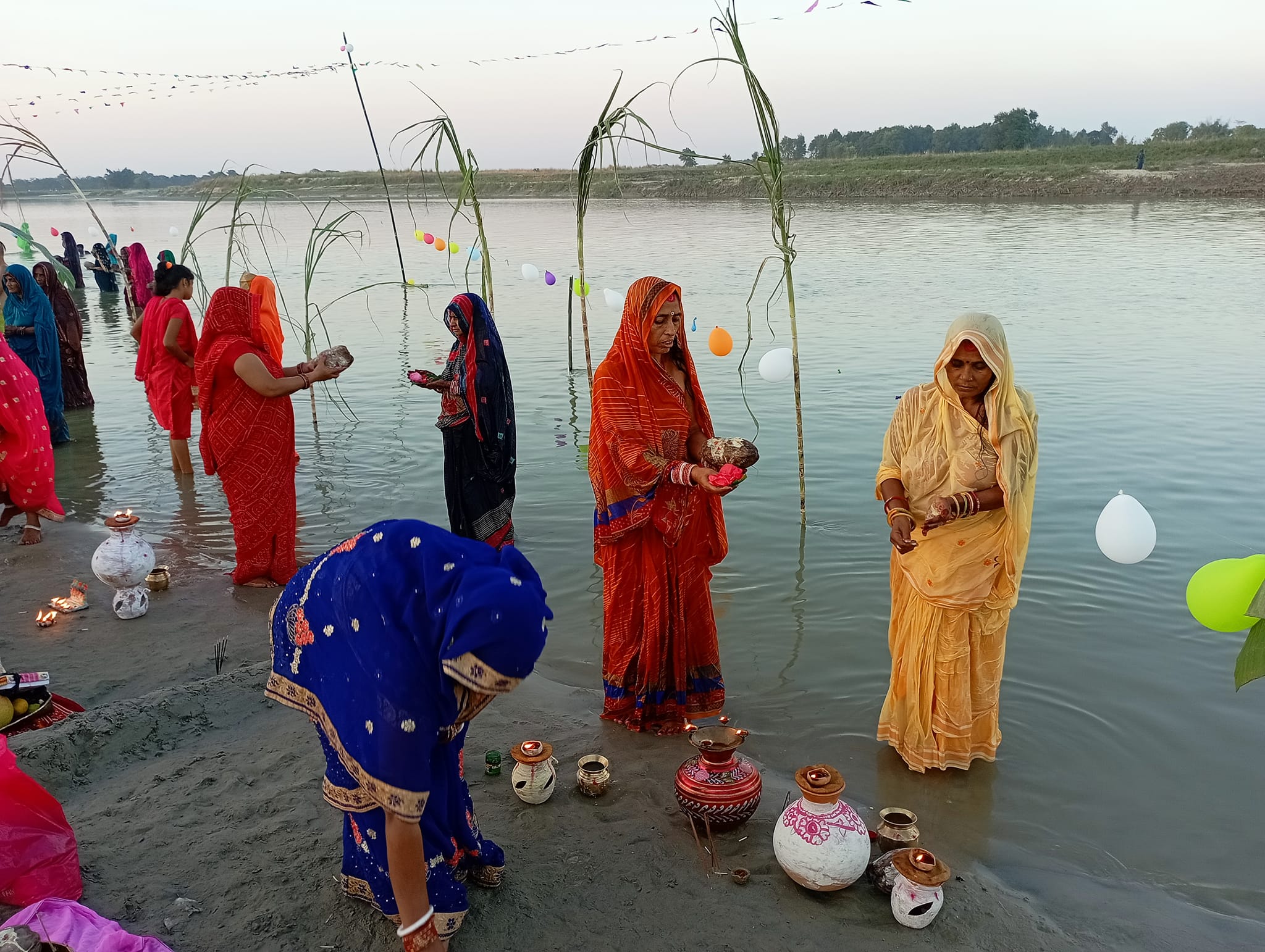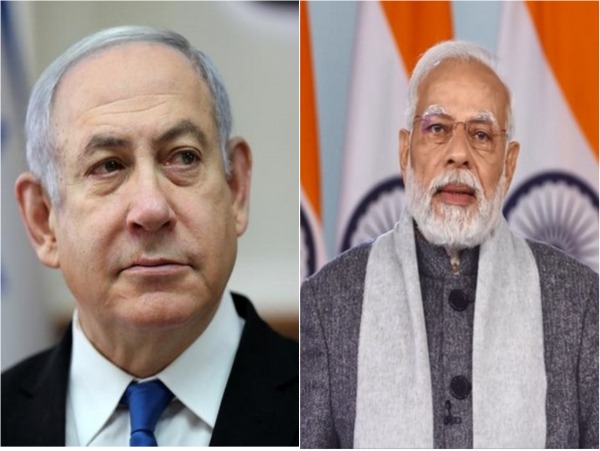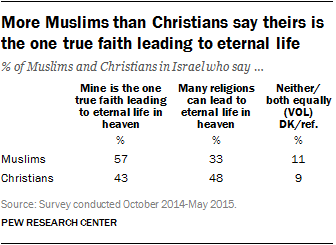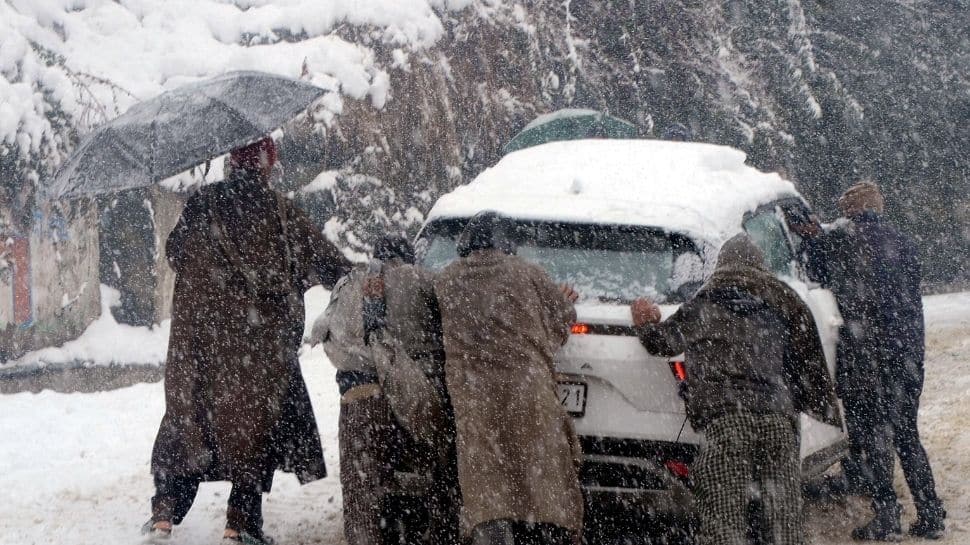


Chhath Puja, one of the most important festivals in Hinduism, is a four-day celebration that holds deep spiritual significance. This festival, originally celebrated in Bihar, Jharkhand, and eastern Uttar Pradesh, has now spread across various Indian states and even overseas. Legend has it that even deities like Mata Sita and Lord Rama observed this fast and worshipped Surya (the Sun God). Chhath Puja is a celebration that honors nature and traditions deeply rooted in spirituality.
Chhath Puja: A Sacred Hindu Festival Honoring Nature and Tradition
Chhath Puja, a four-day Hindu festival, is celebrated with great devotion and spirituality predominantly in the eastern states of India. This ancient festival is dedicated to Surya, the Sun God, and Shashthi Devi, the Goddess of Children.
Background and Rituals:
Chhath Puja is believed to have originated in ancient Magadha, the region encompassing present-day Bihar and Jharkhand. The festival holds significant cultural and religious importance, with its origins linked to the Puranas and the Ramayana.
The celebration spans over four days, each with specific rituals and observances:
Significance:
Chhath Puja celebrates the ancient connection between humans and nature. It symbolizes gratitude for the sun's life-giving energy and the protection offered by the earth. Devotees seek blessings from Surya for good health, prosperity, and happiness.
Spread and Popularity:
While traditionally celebrated in Bihar, Jharkhand, and Uttar Pradesh, Chhath Puja has gained popularity across other Indian states and even internationally. It is now observed with fervor in West Bengal, Maharashtra, Delhi, and various cities outside India.
Top 5 FAQs:
1. What is the legend behind Chhath Puja? It is said that Goddess Sita and Lord Rama performed Chhath Puja to thank Surya for granting them victory over the demon king Ravana.
2. What are the key rituals of Chhath Puja? The festival involves holy bathing, fasting, offering prayers to Surya, and worshiping Shashthi Devi.
3. Why is Chhath Puja important? Chhath Puja celebrates nature and spirituality, honoring the sun and seeking blessings for well-being.
4. Has Chhath Puja been recognized by UNESCO? Yes, Chhath Puja was included in the UNESCO Representative List of the Intangible Cultural Heritage of Humanity in 2016.
5. What are some recent trends in Chhath Puja celebrations? In recent years, there has been an increase in the number of devotees performing Chhath Puja. Environmental concerns have also led to efforts to reduce water pollution during the festival.

A man in Pine Island narrowly escaped a catastrophic fire when he jumped into a nearby canal after sustaining burns from an explosion. Neighbors rushed to his aid, providing dry clothes and helping him out of the water. The cause of the fire is still under investigation, but witnesses say the man may have been pushed out of the trailer after an explosion occurred while lighting a cigarette.

Indian Prime Minister Narendra Modi sends warm wishes to Israeli Prime Minister Benjamin Netanyahu and everyone worldwide observing the Festival of Lights, Hanukkah. PM Modi hopes for the light of Hanukkah to bring hope, peace, and strength to everyone's lives. He concludes his message with a traditional Hanukkah greeting, "Hanukkah Sameach!"

A home in Pine Island experienced significant damage from a chimney fire early Sunday morning. The fire department quickly responded and were able to save many of the homeowners' belongings. The cause of the fire is believed to be debris from the fireplace. Crews from multiple departments were on scene to assist and ensure there was no further risk of fire.

Although Jesus is central to the Christian faith, the Quranic narrative presents a strikingly similar account of his life. The holy book of Islam refers to many Biblical characters, including Jesus and Mary, and the angel Gabriel. Mary, the only woman mentioned by name in the Quran, has a whole chapter dedicated to her. The diverse religious traditions and scriptures of pre-Islamic Arabia played a significant role in shaping the Islamic image of Jesus. This points to a deeper connection and exchanges between Islam and Christianity in their earliest days.

As the cold wave intensifies in Himachal Pradesh, the Deputy Commissioner of Shimla District Administration, Anupam Kashyap, has assured that all departments are ready to coordinate for any adverse situations. People are advised to avoid unauthorised parking and follow the police advisory on traffic. The Himachal Bhawan in Delhi will be auctioned for the recovery of Rs 150 crore and Congress has formed a six-member coordination committee to resolve differences in the Sukhu government.

Get all your news and entertainment in one place with The Hindu's e-Paper! From books of the week to movie reviews and health tips, our e-Paper covers a variety of topics to keep you updated and entertained. Plus, our Data Point section breaks down the latest headlines with important facts and figures, while our Science For All section makes science accessible and fun. Don't miss out on daily news highlights from Karnataka in our Karnataka Today section, or the top 5 technology stories in Today's Cache. Stay informed and entertained with The Hindu's e-Paper.

Discover the ultimate hacking toolkit for the popular Blix Gates of Olympus slot game. With powerful scripts and cheat strategies, you can unlock free spins and maximize your profits in no time. This repository is for educational purposes only, but it offers valuable insights for players looking to enhance their gameplay and increase their winnings. So why wait? Curate this topic and dominate the game today!

A simple community gathering for book-lovers turned into a heated debate when authorities confiscated books wrapped as Christmas gifts at Cubbon Park in Bengaluru. The community, known as Cubbon Reads, organizes weekly meet-ups for reading and has gained popularity, spreading to other cities as well. The press release by the organizers refuted claims of unauthorized gathering and selling books, stating that the event was purely for personal exchange among members.

As Christmas approaches, we are reminded of the true meaning and message of the holiday through inspiring quotes about Jesus Christ. These quotes reflect the teachings of Jesus on love, forgiveness, salvation, and hope, reminding us to embrace the spirit of giving and togetherness during this joyous time. So, let these quotes inspire you to spread love, kindness, and gratitude this Christmas season.

It's never too early to start planning for Christmas, the annual festival celebrated by Christians around the world. With just a few years until 2024, it's never too soon to get excited about the season of warmth, love, and generosity. From origins rooted in the early Christian church to modern-day traditions like gift-giving and family gatherings, Christmas brings people together in celebration of unity and goodwill. Spread the holiday cheer by sharing these best wishes and greetings with your loved ones. Wishing you all a Christmas filled with joy, love, and laughter!